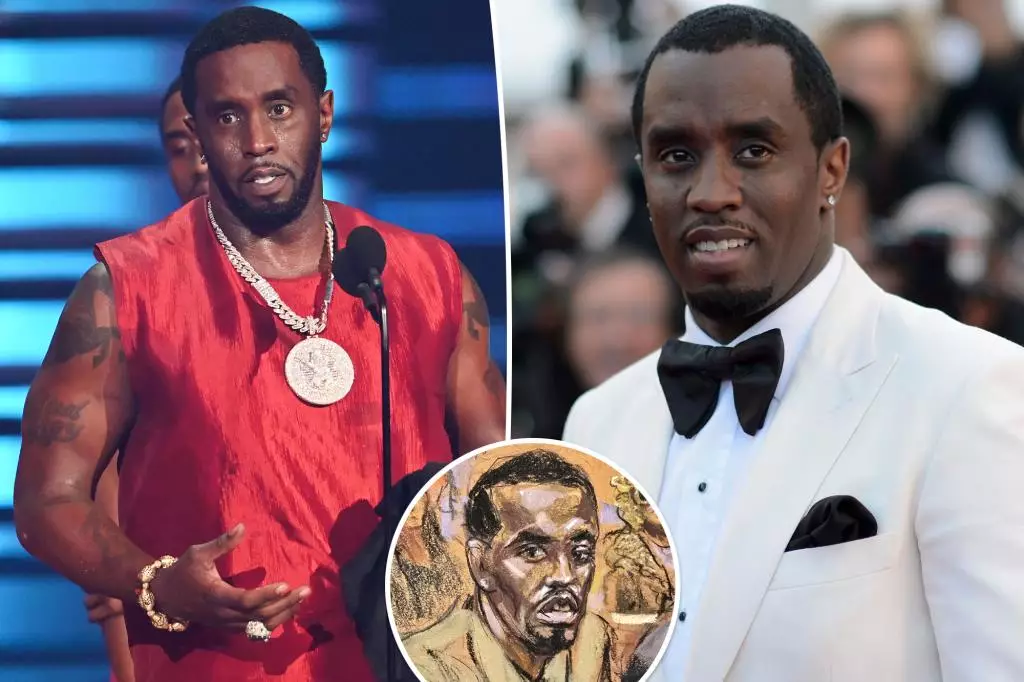The ongoing legal struggle surrounding Sean “Diddy” Combs continues to attract significant media attention and public interest. Recent developments indicate that a woman who accused the music mogul of sexual assault is now being compelled by a judge to disclose her identity, raising substantial questions about privacy, justice, and the implications of high-profile trials in a culture increasingly inclined towards transparency.
In a striking decision from Judge Mary Kay Vyskocil of the Southern District of New York, the plaintiff, referred to as “Jane Doe,” faces a court mandate to reveal her identity by November 13 or risk having her lawsuit dismissed entirely. This case has centered around accusations of sexual assault stemming from a 2004 incident during a party in New York City. While Judge Vyskocil acknowledged the reasonable desire for anonymity in light of the sensitive nature of Doe’s claims, she argued that the decision to publicly accuse a high-profile individual of serious misconduct places certain obligations on the accuser to clarify their identity.
Vyskocil stated that although Doe has a legitimate interest in preserving her anonymity, the gravity of her allegations, which implicate a prominent figure and various associated entities, necessitates transparency. This ruling underscores a critical legal principle: when one seeks recourse through the court system against another, particularly a public figure, there exists a burden of proof that may compel the accuser to step into the public eye.
The allegations outlined in the lawsuit are particularly troubling, involving claims that Combs sexually assaulted the plaintiff after locking her and a friend in a hotel room and making threats. As complex as the legalities of such a case may be, the human element remains at its core — a woman alleging trauma at the hands of a powerful individual. Combs’ representatives have robustly denied the charges, proclaiming his innocence and declaring that the truth will ultimately prevail in court. This stance reflects a growing trend among accused individuals who maintain their innocence in the face of numerous allegations.
Attorney Tony Buzbee, who represents this and many other accusers, has been vocal about the systemic issues surrounding sexual assault claims. He reveals that Doe is one among a larger group of alleged victims, suggesting an institutional culture that may enable and perpetuate misconduct over an extended period.
This case not only highlights individual allegations but also raises important questions about the judiciary’s treatment of victims and the complexities of anonymity in high-stakes lawsuits. The concept of victim privacy in sexual assault cases is integral to how such allegations are presented and prosecuted. When courts demand identities, they risk creating a chilling effect that may deter future victims from speaking out. The fear of retribution, both social and personal, is a barrier that many face when contemplating legal action.
The public scrutiny surrounding celebrities accused of misconduct can often lead to a double-edged sword, where the fight for justice is complicated by media coverage and public perception. In Combs’ case, the trial scheduled for May 5, 2025, will draw lines not only through the testimony provided in court but also through the potential for public opinion to influence proceedings.
In light of these developments, it is imperative to consider the atmosphere surrounding legal actions taken by survivors of sexual assault. The court’s insistence on revealing the identity of Doe risks undermining a critical foundation of the legal system — that every individual should feel empowered to seek justice without fear of exposure or backlash. This case serves as a microcosm for the larger societal discussion around consent, power, and accountability.
It is essential that courts carefully navigate the balance between the right to a fair trial and the need to protect the rights and dignity of those who come forward with grave accusations. A focus on creating safe spaces for victims within judicial processes is crucial, as it can ensure that they feel secure in advocating for their rights.
As this case unfolds, it will undoubtedly spark continued debate and reflection on the power dynamics at play in the legal system, the repercussions of silencing individuals, and the imperative for thoughtful consideration of anonymity in sensitive legal matters. The outcome will not only affect the parties involved but may also influence how future cases of sexual assault are approached and prosecuted in a high-stakes climate.


Leave a Reply